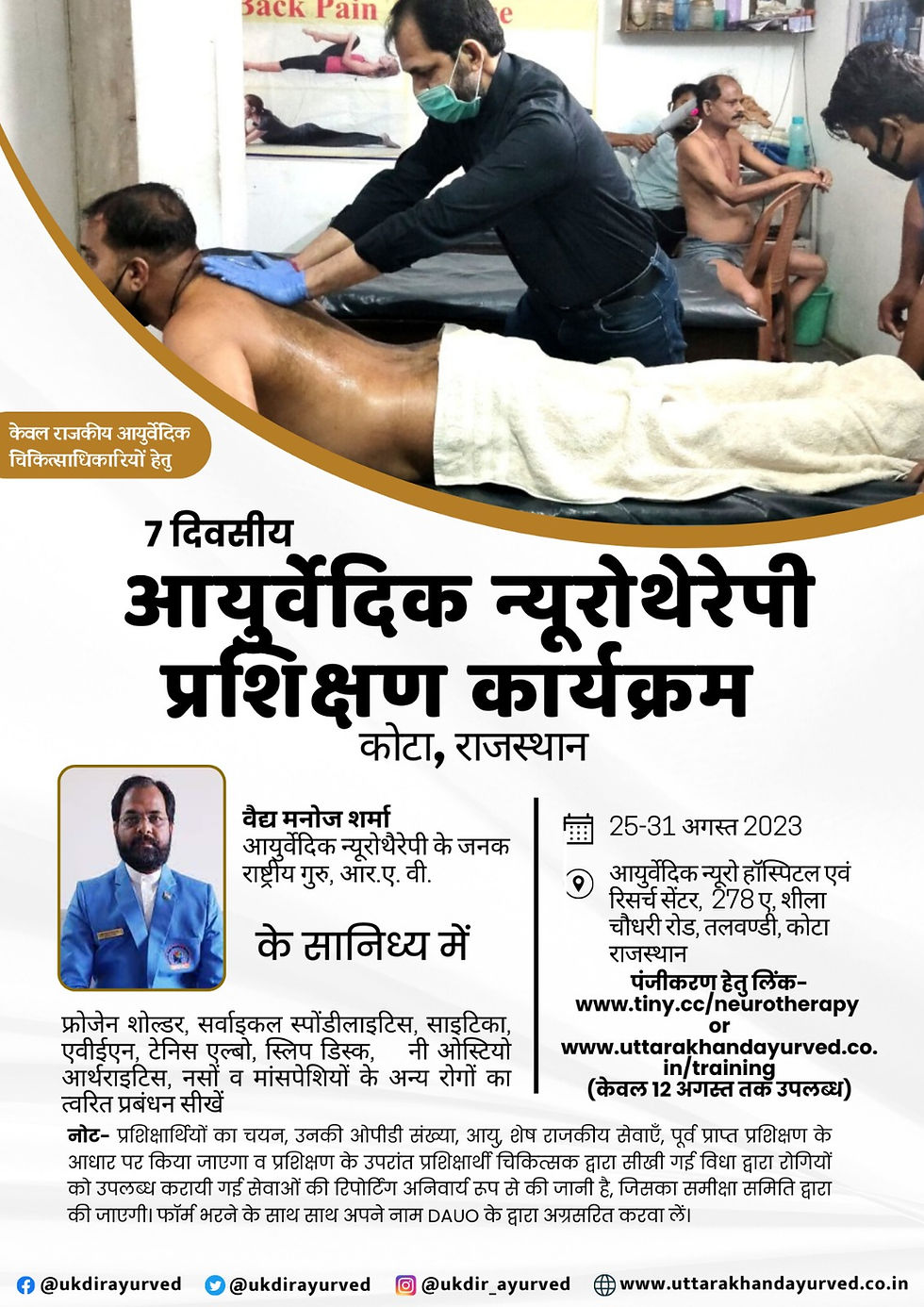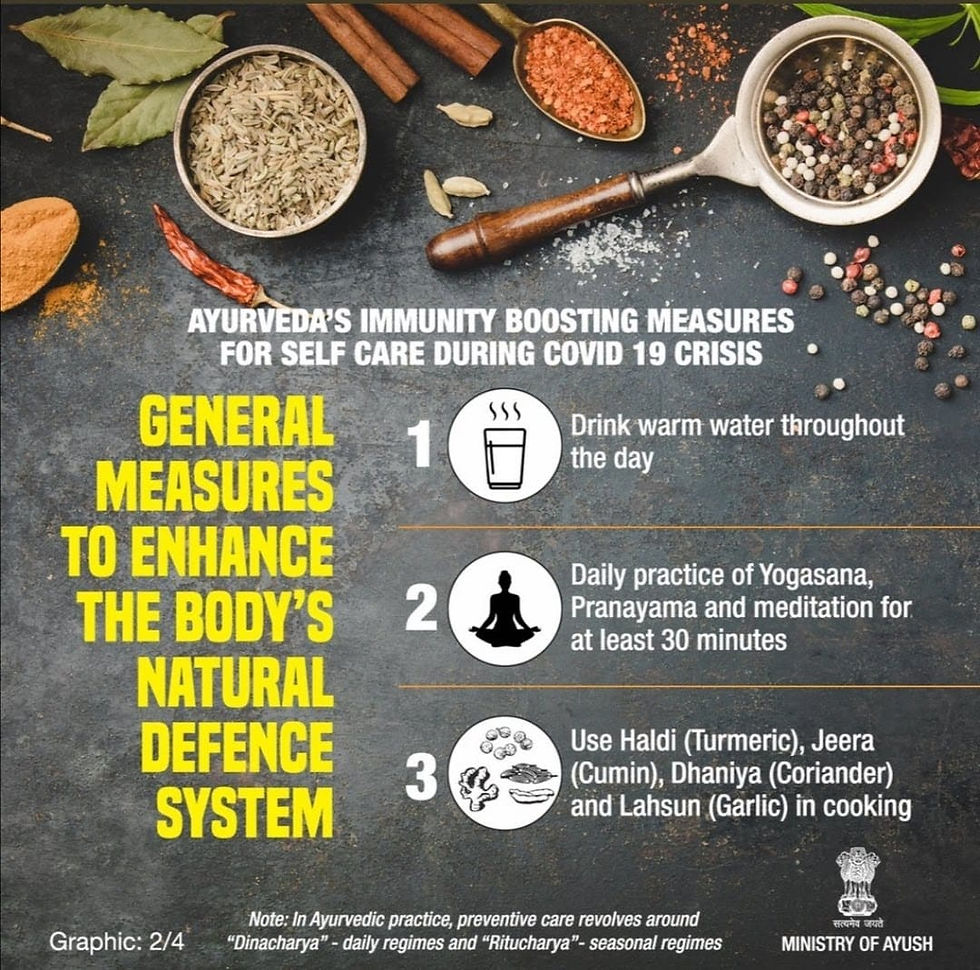Vasudhaiva Kutumbakam
- Uttarakhand Ayurved
- Jun 12, 2023
- 2 min read

Vasudhaiva Kutumbakam is a profound concept that originated from ancient Indian scriptures, particularly from the Maha Upanishads, which are considered to be the essence of Hindu philosophy. It is a Sanskrit phrase that translates to "the world is one family" in English. This concept encapsulates the idea that all of humanity, regardless of race, religion, nationality, or any other superficial differences, is interconnected and should live together in harmony.
The essence of Vasudhaiva Kutumbakam lies in the recognition of the inherent unity and interconnectedness of all human beings. It promotes the idea that we are all part of a global family, and our actions should be guided by a sense of compassion, understanding, and respect for one another. It emphasizes the importance of transcending narrow boundaries and working towards the collective well-being of all individuals.
In a world that is often plagued by conflicts, divisions, and discrimination, the concept of Vasudhaiva Kutumbakam serves as a powerful reminder of our shared humanity. It encourages us to move beyond the limitations of our individual identities and embrace the larger human family. It teaches us to cultivate a sense of empathy and compassion, fostering an environment where peace, cooperation, and understanding can thrive.
Vasudhaiva Kutumbakam also carries an important message for global cooperation and sustainable development. It highlights the need for countries and societies to come together, transcending borders and working collaboratively to address common challenges such as poverty, environmental degradation, and social inequality. It emphasizes that the well-being of one part of the world is intricately connected to the well-being of the whole world.
In practical terms, embracing Vasudhaiva Kutumbakam requires us to adopt a mindset of inclusiveness and respect for diversity. It calls for an end to discrimination, prejudice, and intolerance, and encourages us to appreciate and celebrate the richness of different cultures, religions, and perspectives. By doing so, we can build bridges of understanding, foster peaceful coexistence, and create a more harmonious and prosperous world.
In conclusion, Vasudhaiva Kutumbakam is a profound concept that reminds us of our shared humanity and the interconnectedness of all beings. It urges us to transcend divisions and work towards building a world where compassion, understanding, and cooperation prevail. By embracing this philosophy, we can contribute to creating a more inclusive, peaceful, and sustainable future for all members of the global family.




コメント